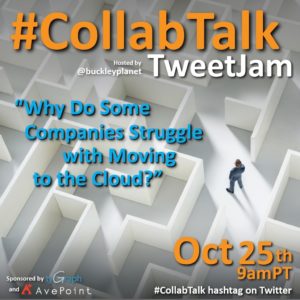Throughout my career I have seen organizations, especially large ones, struggle helping their employees identify the right person with the right information in a timely manner. In a flexible workplace it is often even harder to find which geographically disparate employee has the knowledge you are looking for. It is the organization’s responsibility to provide employees with the tools they need to identify these resources, be it for a long term engagement or to answer a quick question.
Commercial tools like Yammer, SharePoint, Jive, and Telligent offer some of the necessary capabilities for employees to identify these experts. It is not enough for an organziation to have a personelle directory skills list, both because that information changes faster than IT can scale to be responsible for and because a list of skills is only part of the equation. Organizations should provide tools that provide opportunities for you to find SMEs through a variety of both autobiographical (profiles with experience and skills, discussions where people actually talk about their expertise, etc) and biographical (“I met Howie last week and he told me everything I’ve ever needed to know about Knowledge Management”).
The nice thing about this type of expertise identification is that, unlike email, the information is sticky. In my organization we use Yammer heavily – certainly not as an email replacement, although many of our communities of practice are based on Yammer. Any employee, be they 15 years tenured or on their third day of employment, can search Yammer for any number of subjects, from skills (software development, knowledge mangement, change straategy) to products (Huddle, SharePoint, TheBrain). That information will be there today, tomorrow, a year from now – until the firm changes platforms. Maybe it’ll be lower in the search results a year from now but the data is still out there.
Also, skills listings don’t work when employees don’t keep them updated. However, at Booz Allen we have thousands of people participating in conversations on Yammer and those conversations, while indirectly doing so, identify subject matter experts simply through the means of sharing information.
In email, the usual means of “Who knows Knowlede Management” you may get your answer, after it’s been bounced around inboxers until someone knows the answer, but that information is lost immediately. You can share what you know when asked, or even send it up the chain to your boss and hope someone notices, but it’s a very limited scope. It isn’t available to others, it isn’t stored or indexed (most companies have email storage limits that keep things older than 3-6 months off the server making it even harder to find), and it’s completely lost when you leave the organization, heaven forbid.
You’ll notice, I didn’t mention it was the responsibility of the organization to actually identify the experts! In a smaller organization where everyone knows everyone it is fine to assume people know what the others are capable of (it’s not really, but let’s say it is for arguments sake). It’s even somewhat reasonable to assume someone in IT can build a list of capabilities but no organzation has the money to scale this type of a list and keep it up to date.
In a climate of cutting costs and building, efficiency enabling employees to broadcast their abilities and search for others who are broadcasting their abilities is a huge key for success.
featured image credit whitta82 on wordpress


